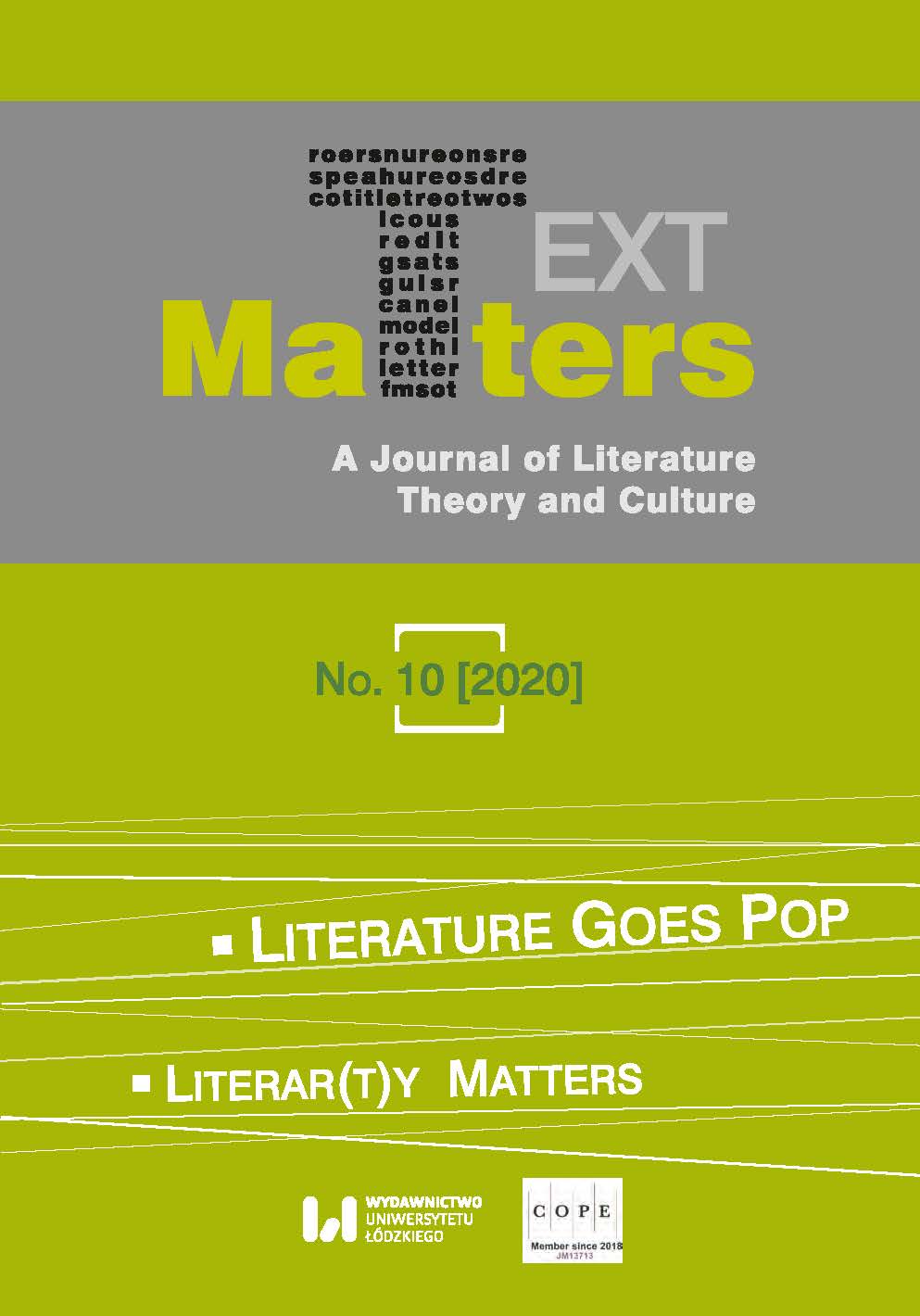The Poetic Bliss of the Re-described Reality: Wallace Stevens: Poetry, Philosophy, and the Figurative Language
DOI:
https://doi.org/10.18778/2083-2931.10.23Keywords:
metaphor, philosophy, poetry, re-configuration, Wallace StevensAbstract
The article addresses the issue of the intimate but troublesome liaison between philosophy and literature—referred to in scholarship as “the ancient quarrel between poets and philosophers.” Its aim is double-fold. First, it traces the interweaving paths of philosophical and literary discourse on the example of Wallace Stevens’s oeuvre. It demonstrates that this great American modernist advocates a clear distinction between poetry and philosophy on the one hand, but draws on and dramatizes philosophical ideas in his poems on the other. The vexing character of his poetic works exemplifies the convoluted and inescapable connections between philosophy and poetry. Second, it discusses various approaches to metaphor, highlighting Stevens’s inimitable take on it. The diverse ways of tackling metaphorical language cognize metaphor’s re-descriptive and reconfiguring character. They embrace e.g., Stevens’s concept of metaphor as metamorphosis, or as “resemblance rather than imitation.” The to date interpretations of Stevens’s poetry in the light of a whole host of philosophies yield important insights into the meaningful interconnections between poetry and philosophy. However, rather than offering another interpretation of his poems from a given philosophical angle, the versatile voices presented here interrogate what poetry consists in.
Downloads
References
Altieri, Charles. Wallace Stevens and the Demands of Modernity: Toward a Phenomenology of Value. New York: Cornell UP, 2013. Print.
Google Scholar
Bartczak, Kacper, and Jakub Mácha, eds. Wallace Stevens: Poetry, Philosophy, and the Figurative Language. Studies in Philosophy of Language and Linguistics 13. Berlin: Peter Lang, 2018. Print. https://doi.org/10.3726/b14736
Google Scholar
DOI: https://doi.org/10.3726/b14736
Black, Max. Models and Metaphors: Studies in Language and Philosophy. Ithaca, NY: Cornell UP, 1962. Print. https://doi.org/10.7591/9781501741326
Google Scholar
DOI: https://doi.org/10.7591/9781501741326
Blasko, Dawn G. “Only the Tip of the Iceberg: Who Understands What About Metaphor.” Journal of Pragmatics 31 (1999): 1675–83. Print. https://doi.org/10.1016/S0378-2166(99)00009-0
Google Scholar
DOI: https://doi.org/10.1016/S0378-2166(99)00009-0
Critchley, Simon. Things Merely Are. London: Routledge, 2005. Print.
Google Scholar
DOI: https://doi.org/10.4324/9780203002636
Miłosz, Czesław. “Incantation.” The Collected Poems 1931–1987. New York: Ecco, 1988. 210. Print.
Google Scholar
Punter, David. Metaphor. London: Routledge, 2007. Print.
Google Scholar
DOI: https://doi.org/10.4324/9780203965887
Ricœur, Paul. The Rule of Metaphor: The Creation of Meaning in Language. Trans. Robert Czerny, Kathleen McLaughlin and John Costello, SJ. London: Routledge, 2004. Print. https://doi.org/10.4324/9780203426616
Google Scholar
DOI: https://doi.org/10.4324/9780203426616
Stevens, Wallace. Collected Poems. New York: A. A. Knopf, 1954. Print.
Google Scholar
Stevens, Wallace. Collected Poetry and Prose. New York: Library of America, 1997. Print.
Google Scholar
Stevens, Wallace. Opus Posthumous. Ed. Milton J. Bates. New York/ London: A. A. Knopf, 1989/1990. Print.
Google Scholar
Stevens, Wallace. The Necessary Angel. Essays on Reality and Imagination. New York: A. A. Knopf, 1951. Print.
Google Scholar
Wittgenstein, Ludwig. Remarks on the Philosophy of Psychology. Oxford: Basil Blackwell, 1980. Print.
Google Scholar
Downloads
Published
How to Cite
Issue
Section
License

This work is licensed under a Creative Commons Attribution-NonCommercial-NoDerivatives 4.0 International License.













